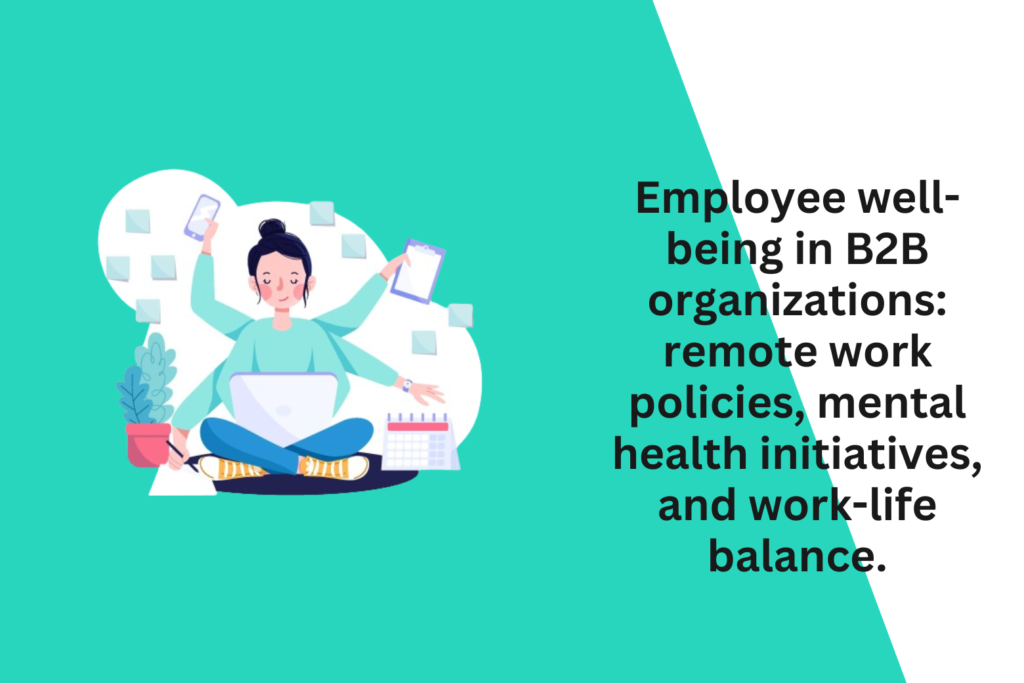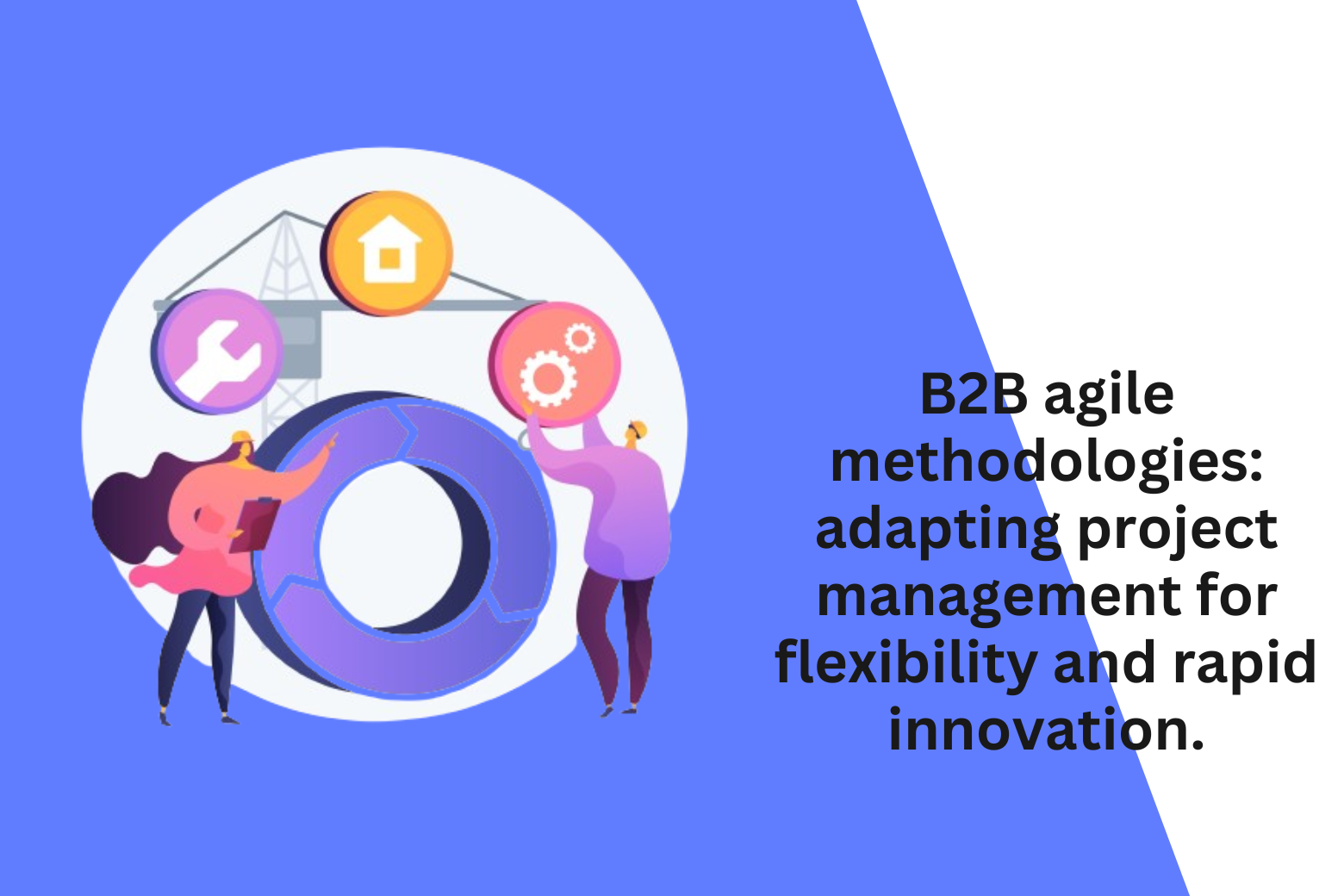
Fostering employee well-being is essential for the success and sustainability of B2B organizations. Here’s an exploration of key elements related to employee well-being in B2B organizations, focusing on remote work policies, mental health initiatives, and work-life balance:
1. Remote Work Policies:
Flexible Work Arrangements:
- Opportunity: Implement flexible work arrangements, allowing employees to work remotely or adopt alternative schedules. This flexibility supports a better work-life balance and accommodates individual preferences.
- Challenge: Balancing the need for flexibility with maintaining effective communication, collaboration, and team cohesion.
Technology and Infrastructure Support:
- Opportunity: Provide the necessary technology, tools, and infrastructure to support remote work effectively. This includes secure access to company systems, collaboration platforms, and training on remote work best practices.
- Challenge: Ensuring cybersecurity and data protection when employees are working from various locations.
Clear Communication Channels:
- Opportunity: Establish clear communication channels to keep remote employees informed about company updates, goals, and expectations. Regular check-ins, virtual meetings, and transparent communication contribute to a sense of connection.
- Challenge: Addressing potential feelings of isolation and ensuring that remote employees feel engaged and included in organizational activities.
2. Mental Health Initiatives:
Mental Health Awareness Programs:
- Opportunity: Launch mental health awareness programs to reduce stigma, raise awareness about mental health issues, and provide resources for support. This can include workshops, webinars, and informative materials.
- Challenge: Encouraging open dialogue about mental health and fostering a supportive culture where employees feel comfortable seeking assistance.
Employee Assistance Programs (EAPs):
- Opportunity: Offer Employee Assistance Programs that provide confidential counseling and support services for employees facing personal or work-related challenges.
- Challenge: Promoting the availability of EAPs and encouraging employees to utilize these services without fear of judgment.
Flexible Time Off Policies:
- Opportunity: Implement flexible time off policies that allow employees to take breaks when needed without feeling guilty. Encourage the use of vacation days and promote a healthy work-life balance.
- Challenge: Addressing potential concerns about workload and deadlines when employees take time off.
Training for Managers:
- Opportunity: Provide training for managers to recognize signs of stress or burnout, facilitate conversations about mental health, and direct employees to available resources.
- Challenge: Ensuring that managers are well-equipped to handle mental health discussions sensitively and confidentially.
3. Work-Life Balance:
Setting Clear Expectations:
- Opportunity: Clearly communicate expectations regarding work hours, response times, and the importance of maintaining a healthy work-life balance. This includes setting boundaries for after-hours communication.
- Challenge: Balancing the need for flexibility with ensuring that employees do not feel pressured to be constantly available.
Promoting Breaks and Downtime:
- Opportunity: Encourage employees to take breaks during the workday, including lunch breaks and short walks. Promote a culture that values downtime and acknowledges the importance of recharging.
- Challenge: Shifting the mindset from constant productivity to recognizing the value of breaks for long-term well-being.
Monitoring Workload:
- Opportunity: Regularly assess and monitor employee workloads to prevent burnout. Distribute tasks equitably and provide additional resources or support when necessary.
- Challenge: Addressing the pressure to meet tight deadlines and ensuring that teams are adequately staffed.
Promoting a Healthy Workplace Culture:
- Opportunity: Foster a workplace culture that values employee well-being, where leaders prioritize work-life balance and set an example for others.
- Challenge: Overcoming ingrained cultural norms that may prioritize overworking and redefining success beyond long working hours.
In conclusion, employee well-being in B2B organizations requires a holistic approach that considers remote work policies, mental health initiatives, and work-life balance. By proactively addressing these aspects, organizations can create a positive work environment that supports the physical and mental health of their employees, ultimately contributing to increased productivity, satisfaction, and retention.



